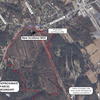Republicans sweep Conservative line for fall
— From Facebook
New Scotland Republicans Peter Drao, Charissa Mayer, and Erik Grissell all won their primaries on Tuesday to appear on the Conservative line in this fall’s general election. Town board candidates Drao and Mayer beat their Democratic opponents, sitting board members Adam Greenberg and Dan Leinung while Grissell bested New Scotland’s current Supervisor Douglas LaGrange.
NEW SCOTLAND — A slate of new Republican candidates in New Scotland have already achieved what a number of frequent also-rans failed to do in previous contested elections: Beat a Democrat head-to-head.
But the primary race for the Conservative line in this fall’s general election for town board and supervisor was marred by dueling endorsement letters from the party’s recently-stepped-down-but-long-serving chairman, Richard Stack, and its new-and-not-unfamiliar-to-controversy county committee head, Thomas Spargo.
Republican Erik Grissell’s name will appear on the Conservative line for supervisor in November after he received 51 votes to current Democratic Supervisor Douglas LaGrange’s 26 — LaGrange, once an enrolled Republican, had previously received the backing of the Conservative Party “seven times over the years,” according to the letter sent by former chairman Stack.
There hasn’t even been a competitive race for the supervisor’s office since 2009, when incumbent Democrat Thomas Dolin beat Republican Michael Fields.
The last time a Republican won a supervisor’s race in New Scotland was 2005. Enrollment in New Scotland skews Democratic.
With 61 votes, GOP town board candidate Charissa Mayer was the top vote-getter on Tuesday, while 48 Conservative ballots were cast for Mayer’s fellow Republican Peter Drao. Current Democratic town board members Adam Greenberg and Dan Leinung received 21 and 19 votes, respectively.
A Republican hasn’t won a seat on the town board since 2009, when current supervisor and then-Republican, LaGrange, was re-elected.
Since 1999, the GOP has won just three seats on the New Scotland Town Board: LaGrange in 2005 and 2009; and, in 2001, Andrea Gleason, who was not enrolled as a Republican, but ran on the Republican ticket — Gleason had been elected in 1997 as a Republican.
On Tuesday afternoon, before a single vote had even been counted, Grissell told The Enterprise he was feeling “very positive” that the final outcome would come down in his favor.
He and his fellow Republicans had visited most if not all Conservatives in town, he said, and “we just got a feel for what the community is looking for and what they’re asking for.”
Grissell said Conservative Party members took to the GOP message of revitalization, an adjective that could also apply to the New Scotland Republican Party itself, which has eschewed well-known retreads in favor of fresh faces; set up a new Republican Committee site that has “revitalize” in the title: revitalizens.org; and relaunched the committee Facebook page, albeit in August 2019, which also appears to have been recently scrubbed of its more inflammatory posts.
“We do want to revitalize this area; we don’t want to take away from the aesthetic beauty of this place,” Grissell said. “We’ve got to have more small businesses in town. I think the community is looking for that; we’re not looking for major, big-box companies to come in here.”
LaGrange said he was not surprised by Tuesday’s outcome.
“It’s the dynamics of politics today,” he said.
He said, when he looked over the list of Conservative Party members who were likely to vote for the Democrats and who were likely to vote for the Republicans, the GOP had a “decided advantage.”
“And then when the letter came out from Mr. Spargo that had a lot of disinformation,” LaGrange said, “I figured that that would probably reinforce [the Republicans].”
As for the fall, LaGrange doesn’t think Tuesday’s result is a harbinger of things to come, and added that the Conservative vote will be a small percentage of the total vote in November.
“It really shows that we have to get our message out,” he said, which is, “we’ve done the things we’ve been asked to do over these years.”
LaGrange said the “three new people coming to town and looking to run for supervisor and town board have no idea [about] the history, the issues we’ve tackled — and, basically, conquered in a sense.”
He continued, “They came to this town, and they say they came here because it’s a great town. So why would you want to change it?”
The Albany County Board of Elections puts current Conservative Party enrollment in New Scotland at 236. The only other minor party in town, the Working Families, has 17 enrolled voters, while there are 2,777 Democrats, and 1,652 Republicans. And there are well over 2,000 voters who are unaffiliated with any party.
The Democratic Party has seen its ranks swell more rapidly than the Republicans as of late.
In 2019, there were 2,532 Democrats; 1,559 Republican; 211 Conservatives; and 16 Working Families Party members. But there were also Libertarians and members of the Green and Independence parties in 2019 who, in 2021, are without a home.
But Republican Timothy Stanton, in his third race for town board, in 2019, had, by far, the best showing of his three runs for the board, earning 1,123 votes, about 23 percent of ballots cast. So, the Democrats’ structural advantage over the GOP in New Scotland made Stanton’s showing, at the least, notable. Considering, 2015 GOP town board candidate received 966 fewer votes than that election’s top vote-getter and 777 fewer votes than the second-place finisher; Stanton was just 145 votes behind the second-place finisher in 2019.
Letters to Conservatives
Conservative Party members received a letter before Tuesday’s vote from Albany County Conoservative Party Chairman Thomas Spargo imploring them to vote for the Republican candidates.
In 2009, Spargo was sentenced to 27 months in prison after being found guilty on extortion and bribery charges for orchestrating a plan to solicit funds from lawyers with cases before him as a State Supreme Court judge in order to pay his own legal bills. A nationally known expert on election law, Spargo was also a participant in what’s known as the Brooks Brothers Riot, a successful Republican protest that shutdown the presidential recount vote in Miami-Dade County, Florida, in 2000.
Spargo in his June 10 letter to Conservative Party members stated LaGrange, Greenberg, and Leinung had been “a serious disappointment in how they have managed town government.”
Spargo wrote, “To many, they have failed to take any initiative on important conditions that need attention and their lack of leadership has let old problems go unresolved.
“The LeVie barn stands off Hilton Road without a viable plan advanced by our local government to preserve and protect these historic buildings in a fiscally responsible manner!”
The letter sent by Stack arrived in Conservative voters’ mailboxes before Spargo’s had and acted as an almost preemptive argument that ultimately fell on deaf ears.
Stack wrote that, under the current town leadership, New Scotland, “maintains one of the lowest tax rates in [the] area while maintaining [a] high level of services.
“The Town maintains a policy of supporting commercial growth, for example, Fred The Butcher, developed the New Hilton Park at Albany County Rail-Trail, and preservation of the Hilton Barn. It has updated Comprehensive Land-Use Plan, [and] continues to promote contracting for garbage pick-up Town wide.
“[LaGrange], his slate Adam Greenberg and Dan Leinung have secured over $2.2 million for projects and an additional $1.2 million more for grants public safety sidewalks Clarksville, LED street lights for the whole town reducing electricity consumption and park improvements.
“There is an old saying, ‘“If it’s not broken, don’t fix it.”’
“White Silence is Violence”
Spargo in his letter also highlighted zoning violations related to a sign with a political message that is protected by the First Amendment as reasons for withholding Conservative backing of candidates the party had previously endorsed: LaGrange, seven times; Greenberg, twice; and Leinung, once.
Spargo wrote that his “personal favorite was the sign left up all last summer and fall on Mason Lane at New Scotland Road that boldly stated on a seven foot square suspended sheet that ‘White Silence is Violence’ for all travelers on New Scotland Road to see.”
Spargo claimed the sign violated three local ordinances — it was too big, it was hung up for too long, and placed too close to the road.
Spargo wrote, “Neighbors complained all summer and fall at Town Hall that the sign made their family members and visitors uncomfortable and didn’t represent the values of their neighborhood. Needless to say, they were ignored. Town taxpayers and residents should expect that their local laws will be fairly enforced without privilege or favoritism.”
Stack in his June 4 letter stated, “Freedom of speech is one of those Amendments that has no boundaries,” and that he had been “surprised to see that Doug LaGrange was being challenged by an opponent this year due to his support of a Town resident’s right to free speech.”
Stack wrote that a “private sign was erected and, after conferring with the Town’s attorneys, it was confirmed that the citizen had the right to express their views. The Supervisor followed the legal advice that the sign was protected free speech under the Constitution.”
He also wrote that the “White Silence is Violence” sign wasn’t the only incident the town dealt with, stating, “There [was] also the posting of Trump signs and anti-Biden signs.”
Stack concluded that New Scotland had been “consistent in its upholding every Resident’s rights.”
Melanie Trimble, the director of the Capital Region Chapter of the New York Civil Liberties Union, previously told The Enterprise that, if signs with a political message are on someone’s personal property, they can stay up year-round and “there’s nothing that the [municipality] can do about that.”
Trimble also said municipalities have tried to regulate political signs in the past and failed.
The United State Supreme Court in a 1971 decision concluded that local governments could not restrict an individual’s speech based on “its message, its ideas, its subject matter, or its content.”
The ruling forced local governments still looking to regulate free speech to meet a higher judicial-review threshold known as “strict scrutiny,” whereby a court needs to be convinced that the law or regulation being proposed to subvert the United States Constitution is needed “to promote a compelling interest” and is “the least restrictive means to further the articulated interest.”
National security and the protection of public safety and health have been upheld by courts as compelling government interests.
The United States Supreme Court in 1994 said a Missouri city ordinance that prohibited all residential signs — with some exceptions — was unconstitutional.
In 1990, Margaret Gilleo, who lived in the city of Ladue, placed a sign in her front yard protesting the First Gulf War in Iraq.
The sign subsequently disappeared, and its replacement was torn down as well. Gilleo reported the incidents to local police — who told her that she shouldn’t have had the signs up in the first place; they were prohibited by law.
In response, Gilleo sought and was denied a variance for the sign by the Ladue City Council.
Gilleo then filed a federal lawsuit against the city.
After five years of court battles, the issue made its way to the Supreme Court.
In declaring the ordinance unconstitutional, the Supreme Court said that, even though the city of Ladue “may regulate the physical characteristics of signs, local governments may not allow some signs and ban others based upon their content,” according to planning and land-use guidance from the New York Department of State.


